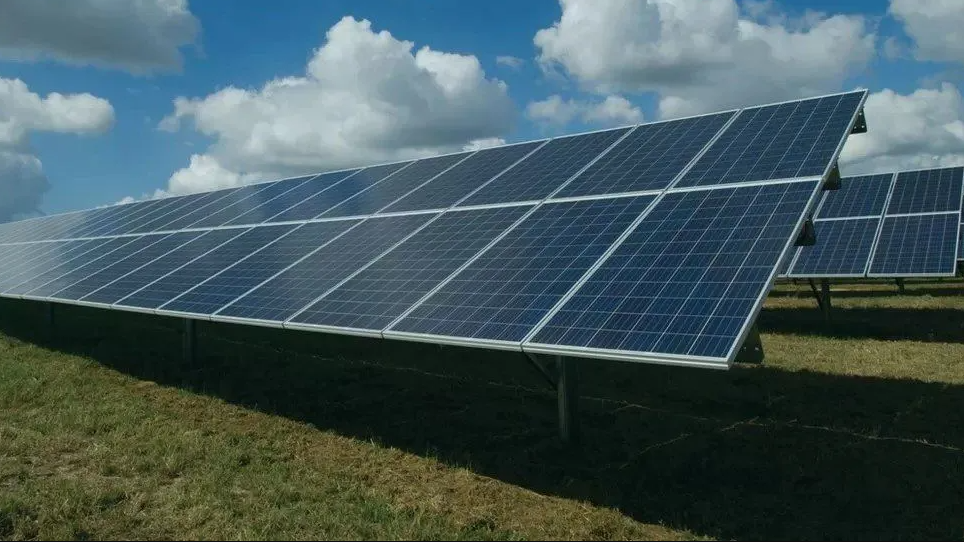Europe's biggest solar farm 'could desecrate fens'
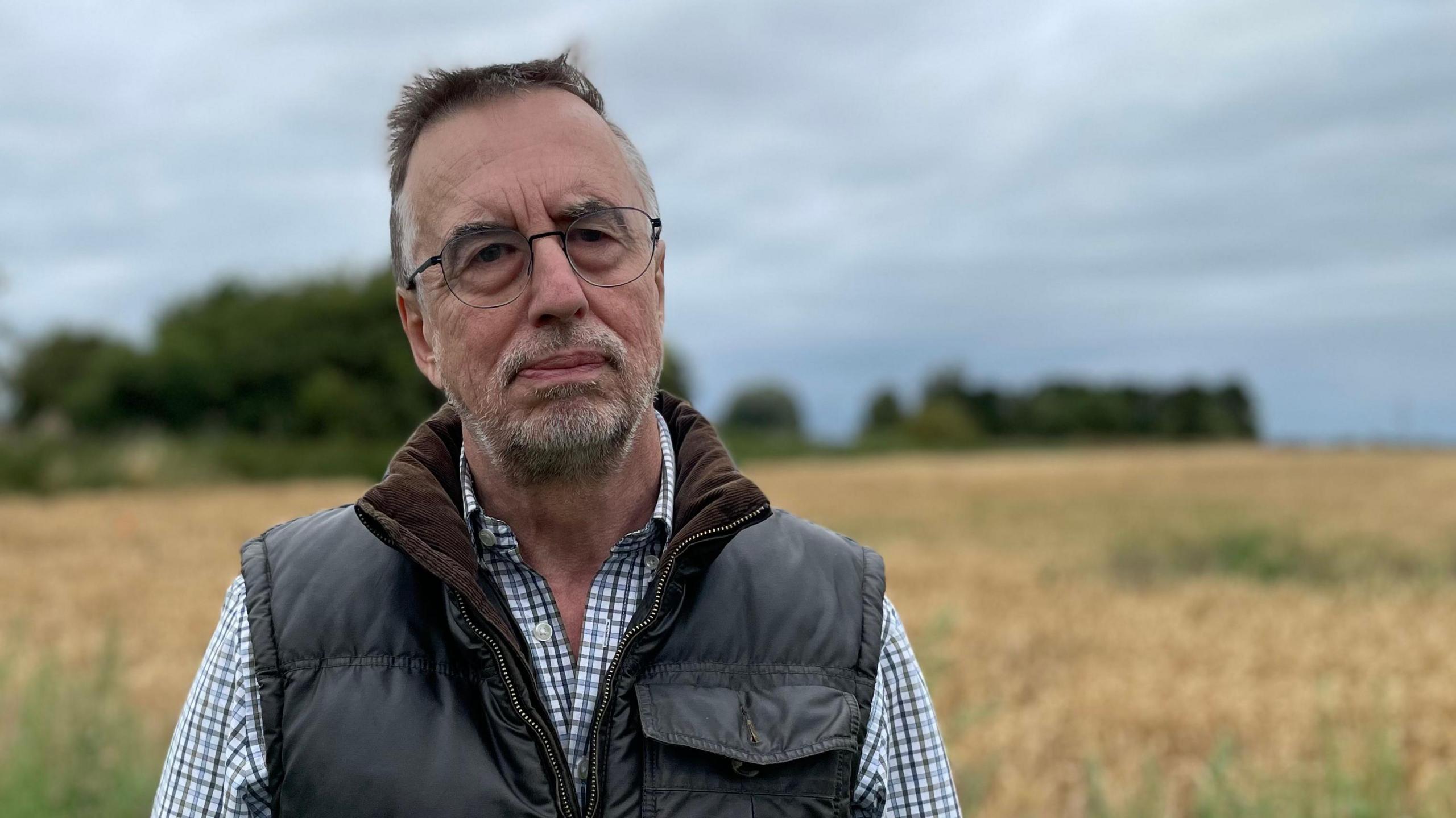
Stuart Gibbard, an agricultural historian, fears the "unique" landscape of the Lincolnshire Fens could be lost
- Published
Campaigners opposed to a large solar energy project have warned it would cause significant damage to communities and the landscape of southern Lincolnshire.
The Meridian Solar Farm could become the biggest development of its kind in Europe, generating electricity for more than 200,000 homes, if it gets the go-ahead from the UK government.
David Vernon, of developer Downing Renewable Developments, said it had met hundreds of residents and stakeholders during a consultation and the project would deliver significant benefits at both a national and a local scale.
However, one opponent, Stuart Gibbard, said he feared it would "desecrate" a "unique" fenland landscape.
If approved, the facility – which the developer has said would meet "the urgent need for cleaner forms of generation to replace fossil fuels" – would cover an area the size of 1,400 football pitches on land to the south of Spalding.
Mr Gibbard, an agricultural historian living near the village of Moulton Chapel, described the area as "one of the most unspoilt" areas of fenland left in England and warned that it could be lost forever.
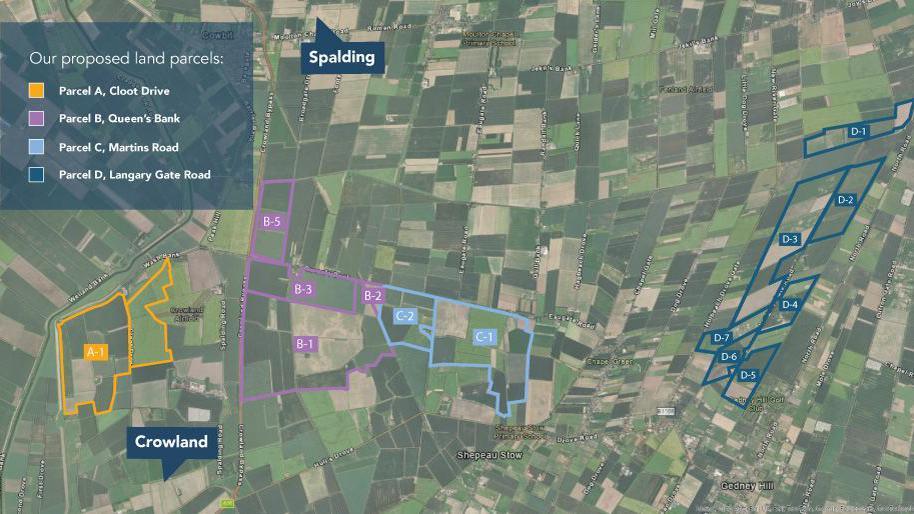
The Meridian Solar Farm would be built across several parcels of land to the south of Spalding
The Meridian Action Group has been formed to oppose the plans and now has more than 400 members, according to organisers.
Their concerns range from the loss of valuable farmland to the potential impact of industrial activity.
Campaigners are concerned that Lincolnshire's role in supplying food to the wider country should not be jeopardised.
Councillor Colin Davie, the executive member for economic development, environment and planning at Lincolnshire County Council, said: "I have repeatedly said that these enormous infrastructure projects should not be dumped in our county and ruin the quality of life of our residents. Our agricultural land should be protected."
'Pleasant land'
The project is at an early stage of planning, but Meridian's developers have said it would "make a significant contribution to energy security in the UK" and "play a key role in accelerating the country's transition to net-zero".
However, Jane Thompson, of the Meridian Action Group, said the cost to the local community would be too great.
"To suddenly have this green and pleasant land swathed in industrial solar panels doesn't bear thinking about," she said.
"We feel that we are being railroaded and people are not considering our feelings with regard to our community."
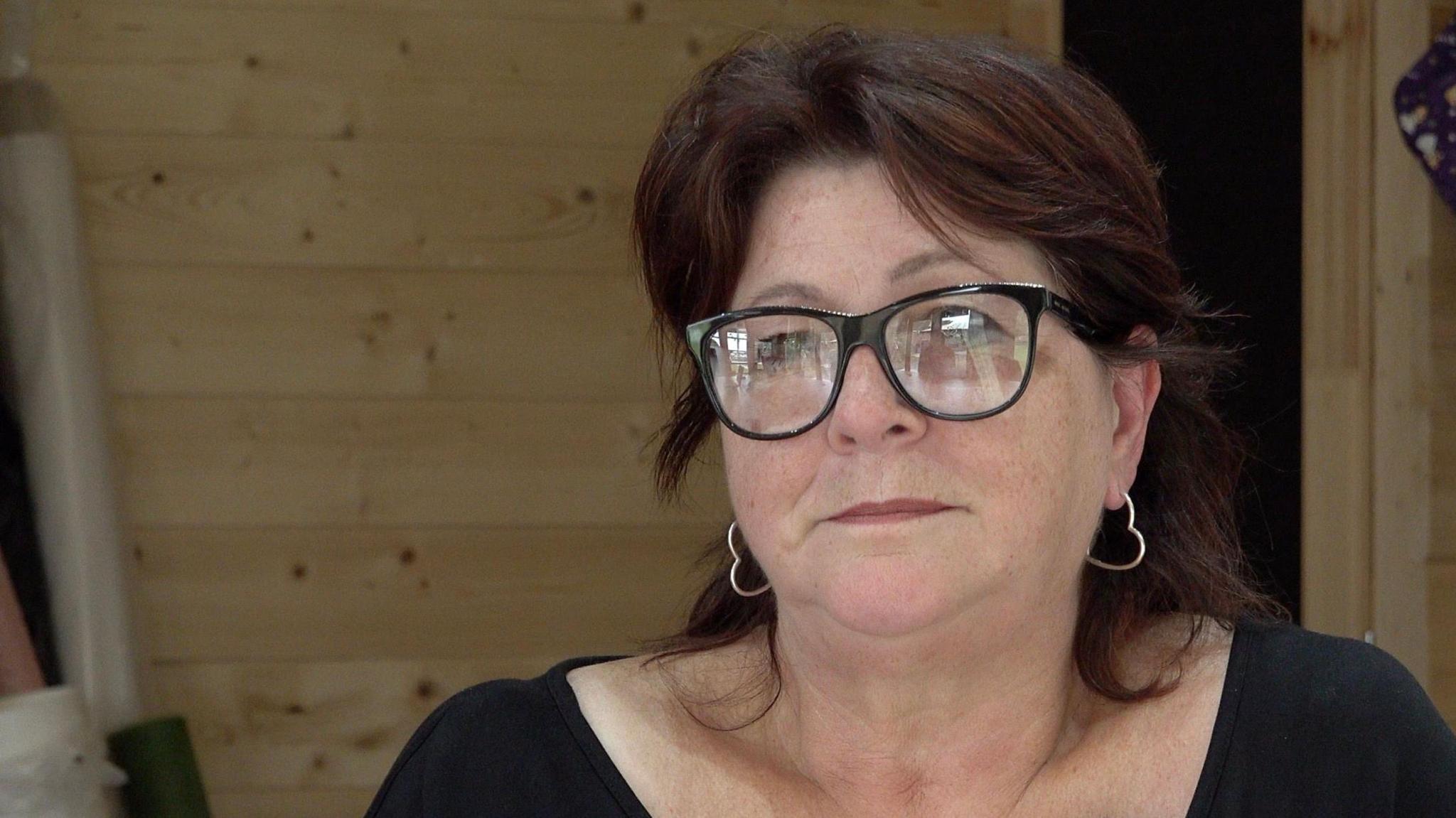
Jane Thompson, of the Meridian Action Group, says the feelings of local communities must be given greater weight
Solar farms greater than 50 megawatts in output are considered too significant to the UK's energy needs to be decided by local councils.
The government has the final say on these so-called "nationally significant infrastructure projects", or NSIPs.
In recent weeks two NSIP solar farms in Lincolnshire have been given the go-ahead by ministers – Mallard Pass, near Stamford, and Gate Burton, near Gainsborough.
In allowing them to be built, the new energy security secretary, Ed Miliband, described solar power as "crucial" to the UK's need for cleaner, cheaper energy.
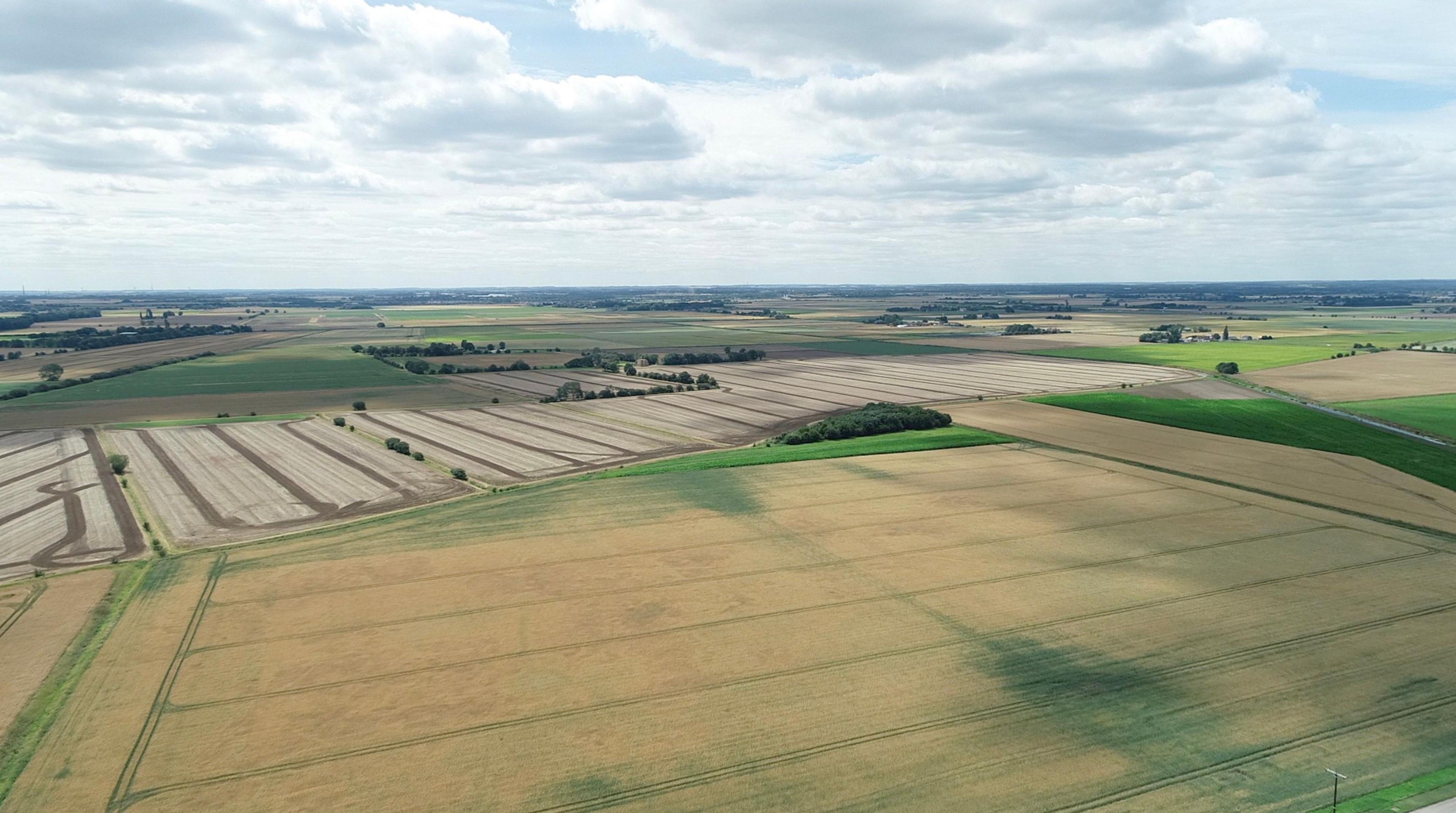
Campaigners are concerned about the impact of a solar farm on the fens landscape
The Meridian Solar project would be built near a number of small villages and hamlets south of Spalding.
The developers have said it would include a battery storage facility and require a 12km (7 mile) pylon network to connect it to a substation and the national electricity network.
The company's website states that, "renewable energy and associated infrastructure are critical to the transition to a low-carbon economy and achieving net-zero carbon emissions targets".
'Supporting communities'
Mr Vernon, who is the head of NSIP projects at Downing Renewable Developments, said a "recent non-statutory consultation was an important step in understanding the communities' views to help inform the early stages of design".
The company held five events and said it wanted to develop a project that "takes account of national and local specific issues in its design and operation".
"The location for Meridian was driven by the search for opportunities to connect to the national grid, and we’ve ensured that the highlighted site areas on the proposals map include land areas that can be used for environmental mitigation and enhancement zones, recreational areas, buffers, and community benefit initiatives, as well as areas for the solar and storage infrastructure," he added.
"We are also passionate about directly supporting the communities associated with our projects through community benefit schemes."
Recent examples from other projects included providing rooftop solar installations, installing electric vehicle charging points, providing permissive paths for walking and recreational use, and creating STEM and employment opportunities.
Mr Vernon said the company would offer an update on key findings from the consultation in the autumn, before presenting initial design proposals.
There are at least 10 other large solar farms proposed for Lincolnshire, in various stages of planning.
The government has said it wants to speed up the decision-making process for big energy projects as it strives to improve the UK's energy security.
Follow BBC Lincolnshire on Facebook, X (formerly Twitter), external, and Instagram. Send your story ideas to eastyorkslincs.news@bbc.co.uk, external
You can listen to more on this story at BBC Sounds.
Related topics
- Published4 August 2024
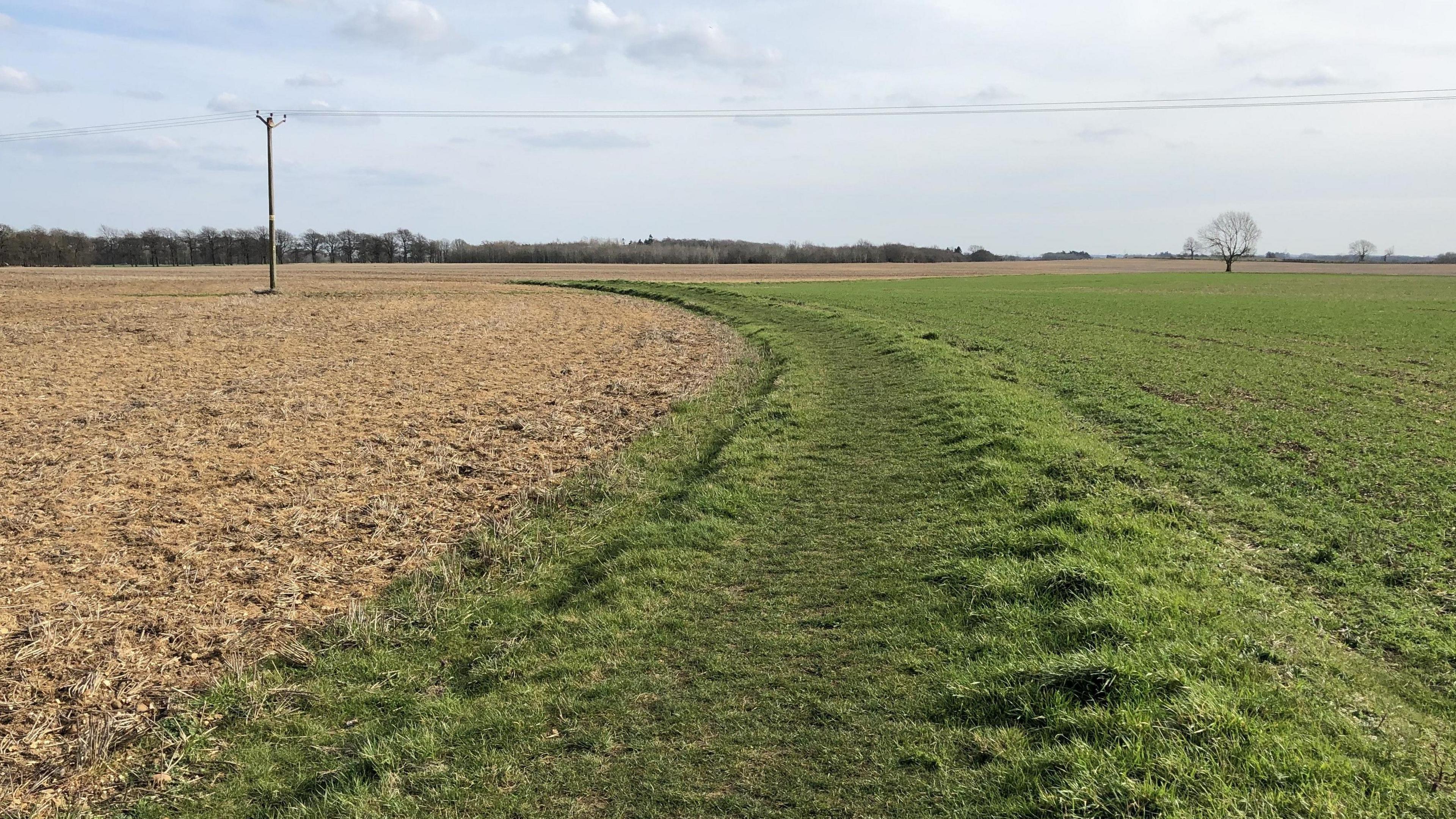
- Published15 July 2024
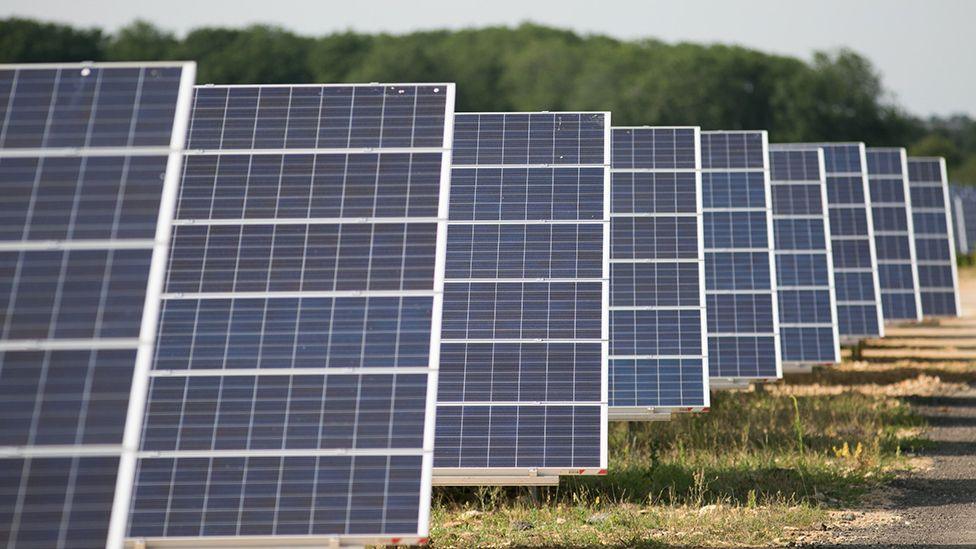
- Published7 October 2022
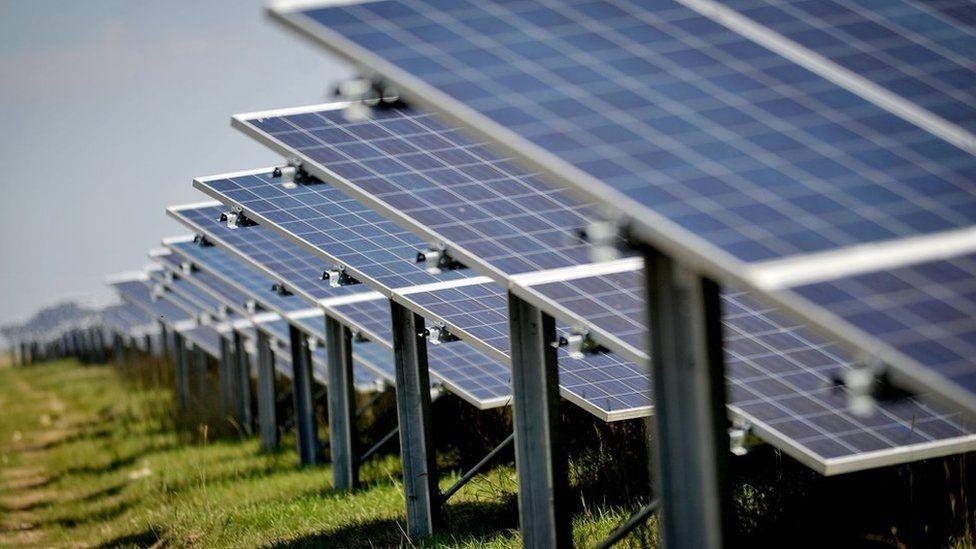
- Published7 August 2024
